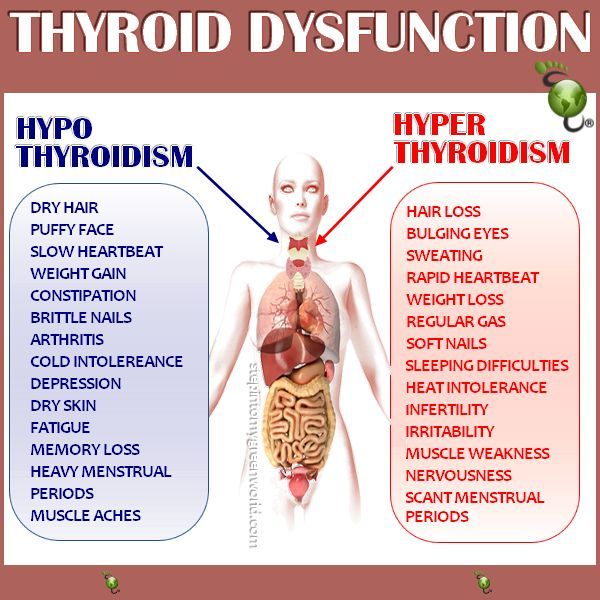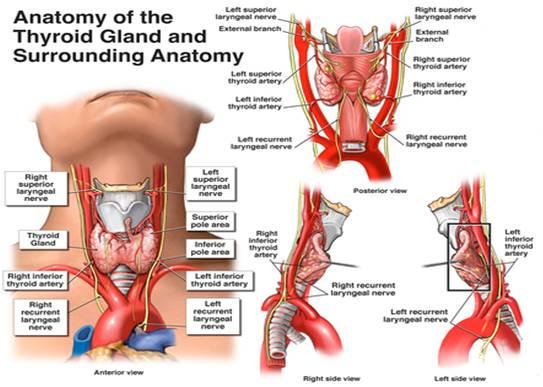Thyroid Information
Many conditions influence the thyroid and therefore overall bodily function. The two primary forms of thyroid dysfunction are known as hypothyroidism and hyperthyroidism. Thyroid disease also includes anatomical disorders including thyroid goiters and nodules.
TYPES OF THYROID DISEASE
Both conditions alter the thyroid’s ability to produce thyroid hormones. These hormones influence nearly every aspect of the body including weight management, energy usage, neurological function, sleep, and many others. The two conditions have mirrored and profound impact on the thyroid and subsequently the rest of the body.
Thyroid anatomical diseases may or may not affect the thyroid function.
Hypothyroidism:
An underactive thyroid, also known as hypothyroidism, is typified by decreased availability of thyroid hormones resulting in an overall slowing of bodily function.
The condition can be caused poor thyroid hormone production, reduced conversion of inactive thyroid hormone (T4) into the active form (T3), inhibited hormone receptivity, nutritional deficiencies, and other factors. Conditions such as diabetes, insulin resistance, depression, and chronic conditions can also contribute to thyroid disease.
A decrease in thyroid function caused by hypothyroidism brings with it many symptoms, including:
• Sensitivity to cold temperatures
• Difficulty losing weight
• Weight gain
• Muscle and joint pain or weakness
• Depression
• Fatigue
• Difficulty thinking clearly
• Brittle hair and nails
• Thinning hair
• Low libido
• Infertility
• PMS
Hyperthyroidism:
In contrast to hypothyroidism, an overactive thyroid is known as hyperthyroidism. Increased thyroid production results in a hastening of your metabolism and other bodily functions. As the amount of thyroid hormone in the form of both T4 and T3 increases, the body becomes hyperactive causing patients to suffer from jitteriness, aggressive and ineffective nutrient consumption, and dangerous energy crashes.
Contributing factors of hyperthyroidism include thyroid nodules, thyroiditis, Plummer’s disease, over-conversion of T4 to T3, liver dysfunction, nutrient deficiencies, heavy metal toxicity, and others. The most common cause of hyperthyroidism is an autoimmune condition known as Graves’ disease.
As thyroid activity continues to increase, the body can suffer from a variety of different symptoms, including:
• Anxiety and/or panic attacks
• Inability to gain weight
• Sudden weight loss
• Excessive sweating
• Irregular or total loss of menstruation
• Insomnia
• Heart palpitations
• Shortness of breath
• Easily triggered reflexes or jumpiness
• Fluctuating highs and lows in energy level


WHAT IS A THYROID GOITER?
A thyroid goiter is an abnormal enlargement of your thyroid gland. Your thyroid is a butterfly-shaped gland located at the base of your neck just below your Adam's apple. Although goiters are usually painless, a large goiter can cause a cough and make it difficult for you to swallow or breathe.
WHAT IS A THYROID NODULE?
The term thyroid nodule refers to an abnormal growth of thyroid cells that forms a lump within the thyroid gland. Although the most thyroid nodules are benign (noncancerous), a small proportion of thyroid nodules do contain thyroid cancer. In order to diagnose and treat thyroid cancer at the earliest stage, most thyroid nodules need some type of evaluation.

